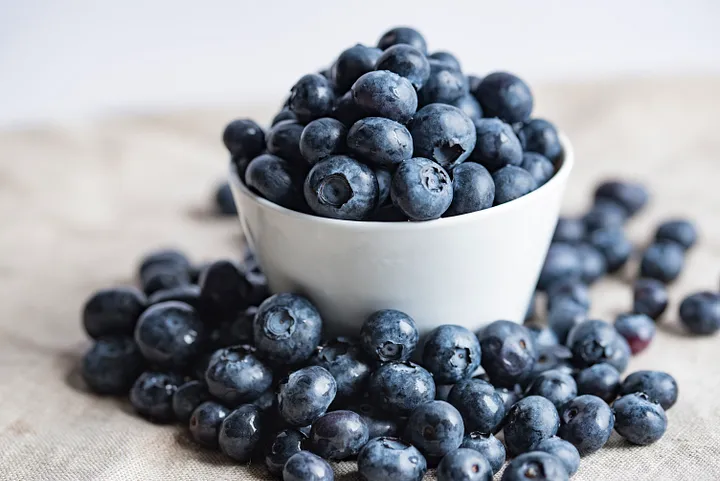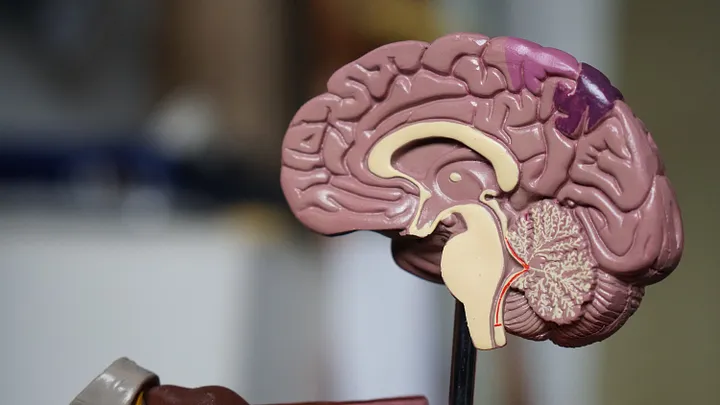Our brain consumes 20% of our metabolic energy. The brain is the control system of our body: memory, alertness, thoughts, ideas, heartbeat, breathing, and movements.

Research also shows a person uses around 320 calories to think on a typical day.
Certain foods can help boost brain health; many foods harm your brain. In 2022, I wrote an article on 8 Brain-Damaging Habits to Quit, which went viral, and I got many questions to learn more.
Research also shows that brain foods play a pivotal role in living a healthy, productive, and long life.
We know that certain foods are the reasons to increase inflammation in the body. The following FOUR foods are anti-inflammatory to clear up inflammation and pump more blood to the brain.
1- Can vegetables boost brain functions?
Research shows that eating a minimum of a half cup of dark leafy greens may help slow the decline in cognitive functions.
Researchers suggest green leafy vegetables such as spinach, kale, turnip green, arugula, mustard green, and Swiss chard. These dark leafy are excellent food sources for excellent mental health.
These vegetables are also rich in vitamins, especially vitamins E and B.
Research has proved that vitamin E helps reduce inflammation in the brain, and vitamin B helps build the DNA process.
How to include dark green leaves into your daily diet?
i) use as wraps for your sandwiches, for example, swiss chard leaves
ii) Eat with eggs; I usually chop some spinach and add it to my veggie omelet
iii) stir fry — I prefer to use a non-stick pan (no oil or a little bit)
iV) Add in smoothies, especially kale
2- Are eggs a superpower for the brain and memory?
Eggs in the morning are a standard breakfast option. I usually add veggies like kale or spinach, fresh green pepper, and cilantro to my omelet.
Eggs are super-rich in omega-3 fatty acids, vitamin B, zinc, and iodine, which will help to boost your mood.
Folic acid, which is super important for our nervous system, can easily be found in eggs.
Misunderstanding of cholesterol
You may have heard that people try to avoid eggs because of the misunderstanding of cholesterol levels in eggs.
Cholesterol plays a pivotal role in mental health. Our brain needs good cholesterol to function correctly.
In fact, the top 3 sources of cholesterol are.
i) fish
ii) seafood
iii) eggs
The yolk part is full of cholesterol; next time you eat an egg, don’t forget to eat the yolk, too.
All in all, eggs are rich in nutrition for brain health.
3- Can blueberries improve your brain health?
Everyone knows that blueberries are packed with antioxidants.
Six years of research shows that berries are super high in flavonoids with significant anti-inflammatory effects. Flavonoids also protect your cells from damage that leads to illness.
These dietary properties in blueberries can prevent the development of cognitive diseases like dementia and Alzheimer’s.
Research also shows that colorful berries like blackberries, blueberries, strawberries, cranberries, and raspberries can reduce anxiety symptoms and prevent neurodegenerative diseases like dementia.
How do I add blueberries to my daily diet?
I prefer to eat berries in the morning or around lunchtime to make a smoothie.

Add half or one cup of berries to your daily diet for excellent mental health.
4- Could eating walnuts help to boost brain functions?
Grandma’s wisdom
I vividly remember my grandmother saying: eat walnuts to sharpen your brain. She never went to school but knew the nutritional value of walnuts. When I asked her how a walnut would sharpen my brain, she always said it looked like a human head. I used to laugh a lot. RIP grandma! We miss you.
Walnuts are great for your brain function and are rich in brain nutrition, like omega 3 and polyphenols.
Walnuts also stimulate healthy blood pressure that will complement excellent brain health by pumping more blood to the brain.
Numerous studies show that walnuts are a great source to boost cognitive functions.
Research also shows that walnuts help to promote learning skills and memory in the long run.
Here are a couple of proven health benefits of walnuts
- Studies show walnuts protect your brain from damaging inflammation and improve brain function
- Rich in antioxidants that can help to lower your bad cholesterol level.
- Best plant source of omega-3s
- It may help to decrease inflammation.
- Studies suggest that eating walnuts can help lower blood pressure.
- Helps to preserve physical function, which means healthy aging.
5- Is fish really brain food?
Note: I don’t eat fish every day.
Oily fish like tuna and salmon are great sources of omega-3 fatty acids, which play a pivotal role in brain health, especially mood.
Research shows that people who ate fish on a regular basis had 30% fewer depression symptoms than those who did not incorporate fish into their diets.
If you look at the open brain (Image), it seems to be formed from fat (almost 60%); therefore, fatty acids are beneficial for brain health.
Studies show that when the brain does not have enough omega-3 fatty acids, the brain structure becomes inferior, leading to cognitive disorders.
Many fatty acids are in the brain, but the essential is omega-3. Our brain health depends on omega-3 fatty acids, especially docosahexaenoic acid (DHA).
Studies show that our body cannot produce DHA on its own; we need proper nutrition to extract the DHA.
That’s why many people take fish oil capsules to get the minimum requirement to keep their brains healthy.
Key takeaways
- Include dark-leaf veggies in your daily diet
- Don’t be scared of cholesterol in eggs — eat the whole egg if you can buy a free range.
- Try to incorporate a cup of berries into your diet
- Walnuts are great for your heart; a healthy heart will boost your mental wellness.
- Fish is the best source of protein and omega-3 fatty acids.
Book Recommendation: Brain Food: The Surprising Science of Eating for Cognitive Power by Lisa Mosconi, PhD




